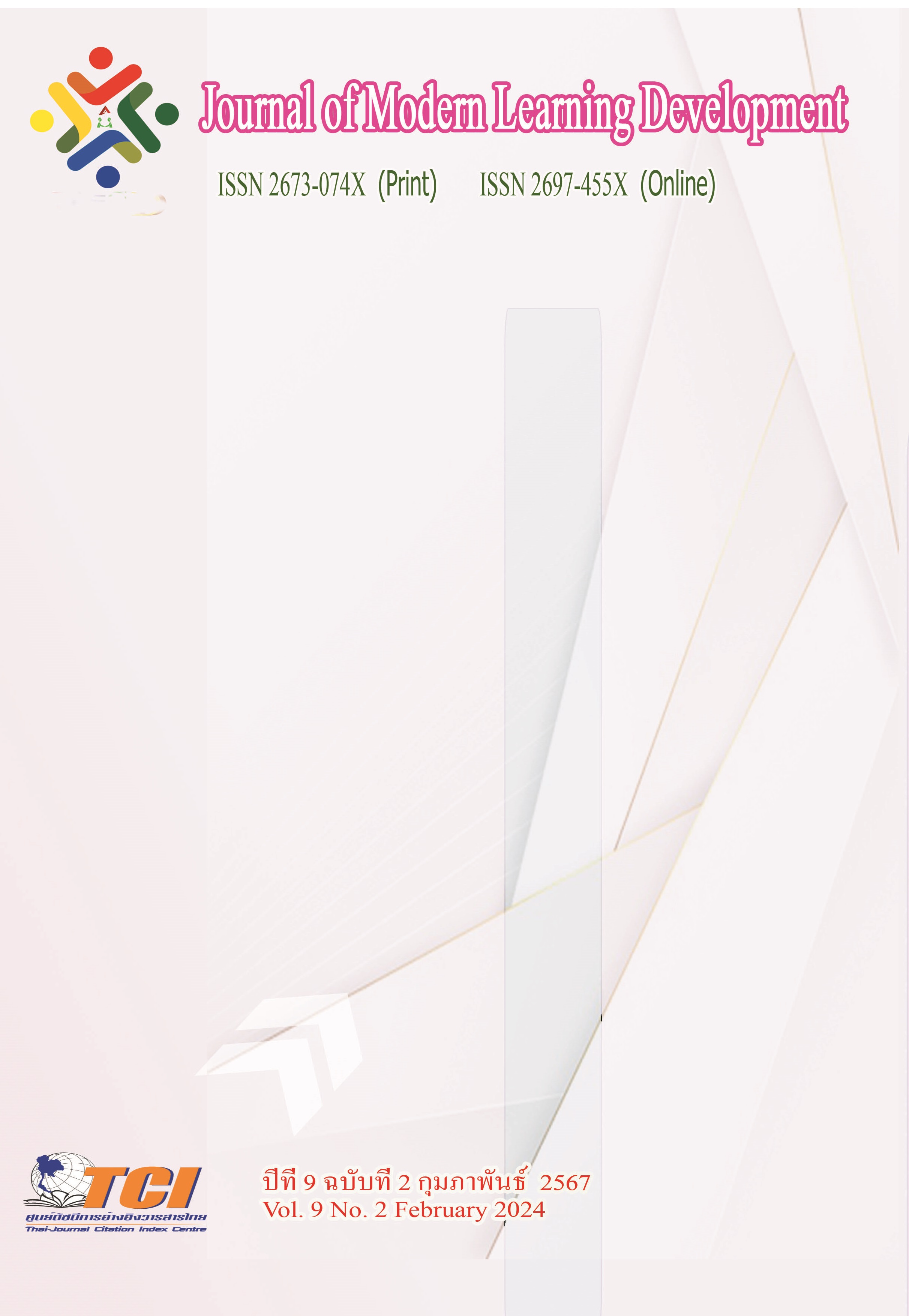The Development of Science Learning Activities Using Problem-Based Learning to Promote Learning Achievement on the Quantity of Electricity for Mathayomsuksa 3 Students
Main Article Content
Abstract
This study aimed to 1) to create and find the efficiency of the science learning activity package using problem-based learning to promote learning achievement on the quantity of electricity for Mathayomsuksa 3 students to meet the 75/75 criterion, 2) to compare achievements between pre-and post-learning by using science learning activity package using problem-based learning to promote learning achievement on the quantity of electricity for Mathayomsuksa 3 students, and 3) to study the satisfaction of students towards science learning activity package using problem-based learning to promote academic achievement for Mathayomsuksa 3 students based on the three processes of research and development. The statistics for data analysis included mean, standard deviation, the efficiency by the formula E1/E2, and t-test dependent for the two groups.
The findings were as follows:
1. Science learning activity package using problem-based learning on the quantity of electricity for Mathayomsuksa 3 students were appropriate based on the experts' opinions at a high level. The E1/E2 efficiency was 70/76.56, meeting the 75/75 criterion.
2. Students experiencing science learning activity package using problem-based learning to promote learning achievement on the quantity of electricity for Mathayomsuksa 3 students had post-learning achievement higher than pre-learning with a statistical significance of .05.
3. Students experiencing science learning activity package using problem-based learning to promote learning achievement on the quantity of electricity for Mathayomsuksa 3 students had overall satisfaction at a high level.
Article Details
References
สำนักงานเลขาธิการสภาการศึกษา กระทรวงศึกษาธิการ. (2550). แนวการจัดการเรียนรู้ที่เน้นผู้เรียนเป็นสำคัญ: การจัดการเรียนรู้โดยใช้ปัญหาเป็นฐาน. กรุงเทพมหานคร: โรงพิมพ์ชุมชนสหกรณ์การเกษตรแห่งประเทศไทย.
ทิศนา แขมมณี. (2534). ชุดกิจกรรมการสอนและการฝึกทักษะกระบวนการกลุ่ม ชั้นประถมศึกษาปีที่ 6.กรุงเทพมหานคร: บัณฑิตวิทยาลัย: มหาวิทยาลัยศรีนครินทรวิโรฒ.
อนุชา โสมาบุตร. (2556). แนวคิดการจัดการเรียนรู้สำหรับครูในศตวรรษที่ 21. ออนไลน์. สืบค้นเมื่อ 8 สิงหาคม 2565. แหล่งที่มา: https://teacherweekly.wordpress.com.
อำพร ชวดสูงเนิน. (2559). การพัฒนาชุดกิจกรรมการเรียนรู้คณิตศาสตร์โดยใช้รูปแบบการเรียนรู้โดยใช้ปัญหาเป็นฐาน เรื่อง สมการเชิงเส้นตัวแปรเดียว สำหรับนักเรียนชั้นมัธยมศึกษาปีที่ 1. วิทยานิพนธ์คณะศึกษาศาสตร์. บัณฑิตวิทยาลัย: มหาวิทยาลัยนเรศวร
บุญชม ศรีสะอาด. (2545). วิธีการทางสถิติสำหรับการวิจัย. (พิมพ์ครั้งที่ 4). กรุงเทพมหานคร: สุวีริยาสาส์น.


